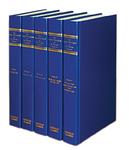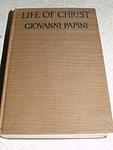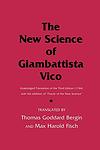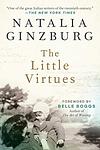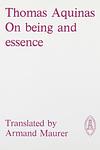The Greatest Italian "Nonfiction" Books of All Time
Click to learn how this list is calculated.
This list represents a comprehensive and trusted collection of the greatest books. Developed through a specialized algorithm, it brings together 284 'best of' book lists to form a definitive guide to the world's most acclaimed books. For those interested in how these books are chosen, additional details can be found on the rankings page.
Genres
Countries
Date Range
Reading Statistics
Click the button below to see how many of these books you've read!
Download
If you're interested in downloading this list as a CSV file for use in a spreadsheet application, you can easily do so by clicking the button below. Please note that to ensure a manageable file size and faster download, the CSV will include details for only the first 500 books.
Download-
1. The Prince by Niccolo Machiavelli
This classic work of political philosophy provides a pragmatic guide on political leadership and power, arguing that leaders must do whatever necessary to maintain authority and protect their states, even if it means compromising morality and ethics. The book explores various types of principalities, military affairs, the conduct of great leaders, and the virtues a prince should possess. It is known for its controversial thesis, which suggests that the ends justify the means in politics.
-
2. If This Is a Man by Primo Levi
This book is a deeply moving and insightful memoir of a survivor of Auschwitz, a Nazi concentration camp during World War II. The author, an Italian Jew, provides a detailed account of his life in the camp, the brutal conditions, the dehumanization, and the struggle for survival. The narrative is a profound exploration of the human spirit, resilience, and the will to live, despite unimaginable horror and suffering. It also raises profound questions about humanity, morality, and the capacity for evil.
-
3. Dialogue Concerning the Two Chief World Systems by Galileo
This scientific work presents a series of discussions between three characters, each representing a different perspective on the cosmological theories of the time. Throughout the dialogue, the characters debate the merits of the Ptolemaic geocentric system, which asserts that the Earth is the center of the universe, and the Copernican heliocentric system, which proposes that the Sun is the center. The author uses these discussions to subtly argue in favor of the Copernican system, challenging the traditional religious and scientific beliefs of his time.
-
4. History of My Life by Giacomo Casanova
"History of My Life" is an autobiography of an Italian adventurer and author, who is best remembered for his often complicated and elaborate affairs with women. The book offers a fascinating insight into his life, travels, and encounters. It provides an intimate look at the social customs and life of the 18th century, as well as the author's personal philosophies on a variety of subjects, including love, luck, and the importance of maintaining a sense of humor.
-
5. Summa Theologica by Thomas Aquinas
This comprehensive text is a seminal work in the field of theology, written by a prominent medieval philosopher and theologian. The book is structured in a question-and-answer format, tackling complex philosophical and theological issues such as the existence of God, the nature of man, the purpose of life, and the intricacies of morality and ethics. It is one of the most influential works in Western thought, particularly in Christian theology and philosophy, and continues to be a vital reference in these fields.
-
6. Lives of the Artists by Giorgio Vasari
"Lives of the Artists" is a comprehensive collection of biographies of the most significant Italian artists from the 13th to the 16th centuries. The book provides a detailed overview of the artists' lives, their works, and their contributions to the art world. It includes the biographies of renowned artists like Leonardo da Vinci, Michelangelo, and Raphael, among others. The author's personal acquaintance with some of these artists lends a unique perspective, making the book a valuable historical document.
-
7. The Periodic Table by Primo Levi
"The Periodic Table" is a collection of short stories that use elements of the periodic table as metaphors to explore the author's experiences as a Jewish-Italian chemist before, during, and after World War II. Each chapter is named after a chemical element, reflecting its significant role in the story. The work provides deep insights into the human condition and the power of science, while also serving as a poignant memoir of survival during the Holocaust.
-
8. Danube by Claudio Magris
This literary work is a rich tapestry that combines travelogue, history, and cultural analysis, following the journey of the river Danube from its sources in the heart of Europe to its delta at the Black Sea. As the narrative meanders through various countries, it delves into the complex history and diversity of the regions along the riverbanks, reflecting on the interplay of different cultures, languages, and peoples. The book is a contemplative exploration of the European spirit, examining the river as both a physical and metaphorical conduit through which ideas and influences have flowed, shaping the continent's past and present.
-
9. Christ Stopped at Eboli: The Story of a Year by Carlo Levi
The book is a memoir about the author's year of exile in a remote region of southern Italy during the fascist regime. It depicts the harsh living conditions, poverty, and backwardness of the area, where the peasants' lives are ruled by superstition and tradition. Despite the difficulties, the author finds beauty and dignity in the people and their way of life, and he paints a vivid picture of their culture, beliefs, and struggles. The title refers to the locals' belief that they have been forgotten by modernity and even by God.
-
10. The Drowned and the Saved by Primo Levi
This book is a deeply moving exploration of the Holocaust, written by a survivor. It delves into the horrifying experiences at Auschwitz, examining the psychological impact on the prisoners, the brutal behavior of the guards, and the complex moral dilemmas faced by both. The author also discusses the concept of memory and its unreliability, especially in the context of such traumatic events, and analyzes the ways in which the Holocaust has been represented and remembered in society. The book serves as a profound meditation on the human condition under extreme circumstances.
-
11. The Marriage Of Cadmus And Harmony by Roberto Calasso
"The Marriage of Cadmus and Harmony" is a unique exploration of Greek mythology. The narrative follows the journey of Cadmus, a Phoenician prince, and his marriage to Harmony, a goddess. The book delves deep into the complex and rich tapestry of Greek myths, presenting them as a continuous and ever-evolving story. It offers fascinating insights into the gods, heroes, and monsters of ancient Greece, while also drawing connections to modern life and thought.
-
12. Life of Christ by Giovanni Papini
"Life of Christ" is a comprehensive biography of Jesus Christ, exploring his life, teachings, and impact on humanity. The book delves into the historical, cultural, and spiritual context of his era, providing in-depth analysis of his miracles, parables, and relationships with his disciples and followers. The author also examines the significance of Christ's crucifixion and resurrection, aiming to provide a thorough understanding of his life and mission.
-
13. Travels by Marco Polo
This book is a detailed account of a Venetian merchant's extensive travels throughout Asia during the 13th century. The narrative provides a comprehensive exploration of the diverse cultures, customs, landscapes, wildlife, and wealth of the Eastern world, including the Mongol Empire and China, where the author spent time in the court of Kublai Khan. His descriptions of the grandeur and sophistication of these civilizations challenged European assumptions about the East, and his tales of exotic wonders and adventures continue to captivate readers today.
-
14. The New Science by Giambattista Vico
"The New Science" is a groundbreaking philosophical work that proposes a new approach to the study of society, history, and the nature of human behavior. The author argues that human beings are the creators of their own history, culture, and society, and that they can therefore understand these phenomena in a way that they cannot understand the natural world. He also introduces the concept of a cyclical theory of history, where societies rise, develop, and eventually decline, only to rise again in a different form. The book has had a profound influence on a range of fields, including anthropology, sociology, and history.
-
15. Prison Notebooks by Antonio Gramsci
The book in question is a collection of intellectual and critical writings composed by an influential Marxist thinker while incarcerated by a Fascist regime. These notebooks delve into a wide array of subjects, including political theory, sociology, critical theory, and cultural analysis. Central to the work is the concept of cultural hegemony, which explores how state power and societal norms are maintained not just through force but also through cultural institutions and practices that shape public consciousness. The author's reflections on power, class, and ideology have had a profound impact on contemporary political and social thought, offering a nuanced understanding of the superstructures that govern societal dynamics and the potential for transformative change.
-
16. The Little Virtues by Natalia Ginzburg
"The Little Virtues" is a collection of essays that delve into the fabric of everyday life, exploring themes such as the intricacies of family relationships, the importance of personal growth and integrity, and the role of education and parenting. The author reflects on her own experiences, including her upbringing in Italy, the impact of World War II on her life, and her observations on the cultural and societal norms of her time. With a blend of personal anecdote and philosophical insight, the essays advocate for the pursuit of larger virtues—such as generosity, honesty, and courage—over the 'little virtues' like frugality and caution, suggesting that a life well-lived is one that embraces the full spectrum of human potential and kindness.
-
17. The Montessori Method by Maria Montessori
The book provides an in-depth exploration of the educational method developed by the author for teaching children. It emphasizes the importance of self-directed activity, hands-on learning, and collaborative play in child development. The book also discusses the author's philosophy of observing children in a "prepared environment" where they have access to materials and experiences to aid their learning. The method encourages children to make creative choices in their learning, while the teacher guides the process. The book also delves into the author's belief in the critical importance of the early years of a child's life in shaping their future development.
-
18. The Future Of Democracy by Norberto Bobbio
In "The Future of Democracy," the author provides a critical examination of the concept and practice of democracy, exploring its historical evolution, inherent challenges, and potential future. The work delves into the tension between the ideals of democracy and the practical realities of governing, addressing issues such as the role of political parties, the influence of public opinion, and the impact of economic inequalities. The author argues for the necessity of continuous democratic reform and the importance of safeguarding democratic principles in the face of changing social and political landscapes, ultimately presenting a thoughtful reflection on the prospects and resilience of democratic systems in the modern world.
-
19. On Being And Essence by Thomas Aquinas
"On Being and Essence" is a philosophical treatise that delves into the complex concepts of essence and existence, primarily focusing on the distinctions and relations between the two within the context of Scholastic metaphysics. The work systematically explores how substances are composed of essence and existence, how these components relate to each other, and how they contribute to an entity's being. The treatise also examines the attributes of different beings, particularly distinguishing between material and immaterial substances, and discusses the implications of these distinctions for understanding the nature of reality and the existence of God. Through rigorous analysis, the text seeks to provide a foundational understanding of metaphysical structures, which underpin the scholastic theological and philosophical tradition.
-
20. Survival In Auschwitz by Primo Levi
This book is a harrowing, first-person account of a man's year-long ordeal in Auschwitz, the infamous Nazi concentration camp. The narrative details the brutal conditions, the dehumanizing treatment, and the constant struggle for survival. Despite the horrors he faces, the author emphasizes the importance of maintaining one's humanity and dignity, even in the face of unimaginable cruelty. The book serves as a poignant reminder of the depths of human depravity, as well as the resilience of the human spirit.
-
21. Il Mestiere Di Vivere by Cesare Pavese
The book is a deeply personal diary that chronicles the inner life of its author, a prominent Italian writer, over a period of more than a decade. It offers a raw and intimate glimpse into his thoughts, daily experiences, and struggles with existential questions, relationships, and his own creative process. The diary entries reflect on themes of solitude, despair, and the search for meaning, as well as the author's observations on literature, politics, and the human condition. The work is renowned for its literary introspection and the poignant exploration of the challenges inherent in the "craft of living."
-
22. Sonnets And Madrigals by Michelangelo Buonarroti
"Sonnets and Madrigals" is a collection of deeply personal and reflective poetry by one of the Renaissance's most iconic figures, known primarily for his monumental contributions to art and architecture. The poems reveal a lesser-known side of the artist's creative genius, exploring themes of love, beauty, spirituality, and human emotion. Through the structured elegance of sonnets and the lyrical flow of madrigals, the poet delves into the complexities of the human condition, offering insights into his own inner life and the intellectual currents of his time. The work stands as a testament to the multifaceted talent of an individual who could express profound ideas not only through visual mediums but also through the power of the written word.
-
23. Notebooks by Leonardo da Vinci
The book is a compilation of writings and sketches from one of history's most brilliant minds, offering a window into the intellectual pursuits and creative process of the Renaissance polymath. It encompasses a wide array of subjects, from anatomy to hydraulics, from painting to engineering, revealing the author's insatiable curiosity and his systematic approach to observation and inquiry. The collection is not only a testament to the author's genius but also a source of inspiration and insight into the fusion of art and science during the Renaissance period.
-
24. Autobiography by Benvenuto Cellini
The book is a vivid personal account of a 16th-century Italian artist and goldsmith, providing a detailed portrayal of Renaissance life. The author narrates his tumultuous career, which spanned artistic triumphs, patronage under powerful figures, and frequent legal and violent skirmishes. His narrative is filled with tales of his work on important commissions, his encounters with notable contemporaries, and his passionate dedication to art. The autobiography stands out for its lively storytelling, the author's brash personality, and insights into the social and cultural dynamics of the time, making it a valuable historical document as well as an engaging personal story.
-
25. The Expulsion Of The Triumphant Beast by Giordano Bruno
"The Expulsion of the Triumphant Beast" is a philosophical treatise that delves into the author's vision of the universe and the nature of knowledge. It is an allegorical work that critiques the religious and philosophical dogmas of its time, advocating for a pantheistic conception of God and an infinite universe. The book challenges the Aristotelian cosmology and the dominance of the Catholic Church, promoting a new understanding of the cosmos where God is present in all things, and all religions contain a portion of the universal truth. The author's ideas were revolutionary, contributing to the development of modern thought, but also controversial, leading to significant conflict with the religious authorities of the era.
Reading Statistics
Click the button below to see how many of these books you've read!
Download
If you're interested in downloading this list as a CSV file for use in a spreadsheet application, you can easily do so by clicking the button below. Please note that to ensure a manageable file size and faster download, the CSV will include details for only the first 500 books.
Download



